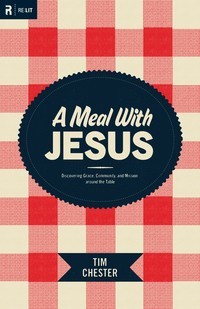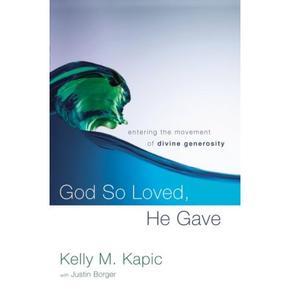This is Part Three of a three part series. To read the other posts in this series, see Part One and Part Two.
So we eat. We are dependent on many and ultimately God for the grace of our continued diets. We say grace at mealtimes in recognition of that dependence. For all that, many of us don’t consider that theology has much to do with meals and eating.

Tim Chester’s wonderful little book A Meal with Jesus is a beautifully tasty happy meal of a book. But in the true sense of happy, rather than being accompanied with a cheap plastic toy in a paper bag. Chester is a theologian and church planter who recognizes that one of the descriptions of Jesus is that he comes: to serve and to give his life as a ransom for many, to seek and save the lost, and he comes eating and drinking! (p age 14) At a wonderfully accessible level that jumpstarts the semester in my class, A Meal with Jesus is a kind of practical systematic theology in missionary guise. The subtitle of the book is ‘Discovering Grace, Community, & Mission around the Table’. His chapters are Meals as Enacted:
(1) …Grace: Luke 5;
(2) …Community: Luke 7;
(3) …Hope: Luke 9;
(4) …Mission: Luke 14;
(5) …Salvation: Luke 22; and
(6) …Promise: Luke 24
Chester writes a book about meals as enacted embodiments of God’s grace giving form to community and mission. In a course that covers Salvation, Holy Spirit, Church and Last Things his text is a winning introduction.

And I follow this up by deploying a book by Kelly Kapic called God so loved, he gave. Entering the movement of divine generosity. Clearly this perspective of divine generosity fits in with my theme of hospitality and its expression in meals and community. We particularly focus on how Kapic addresses the person and work of the Holy Spirit. “By the Spirit, God gives himself in such a way that he is not only with us, but in us”(page 96). What I love about Kapic’s writing is the way he links the gift of the Son and the Spirit outward to the life and mission of the church in its gifts for service, as also to the gift of the Kingdom of God in the authority of the risen King Jesus. ‘Believers are invited to participate in his heavenly rule as we carry out his commandments in his Spirit. His kingdom is dawning as “heaven” has come bursting through into the present”(page 131). Again all doctrinal loci of the course are taken up integratively.
If you haven’t yet feasted on these books, please accept this invitation to the meal these authors have prepared for you.
 Biola University
Biola University
.jpg)


.jpg)